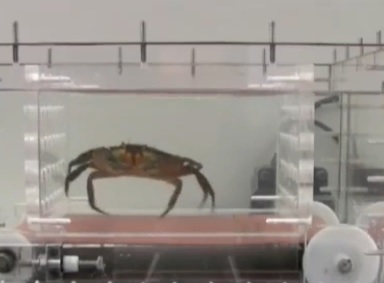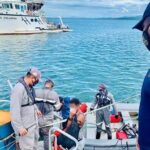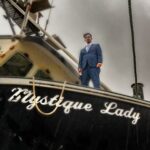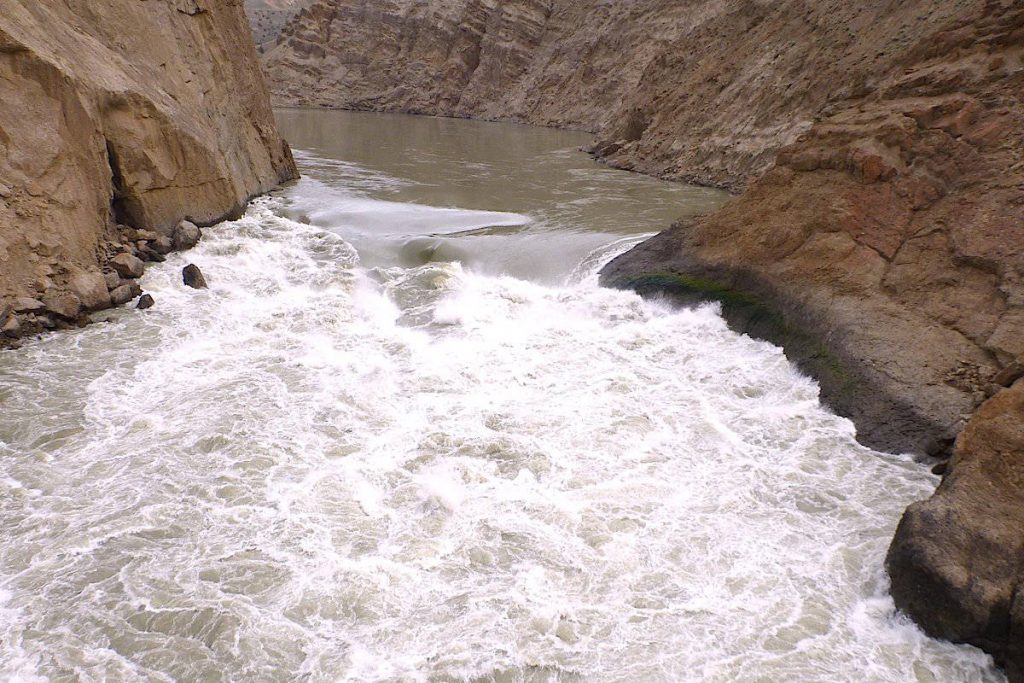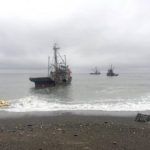Daily Archives: July 16, 2018
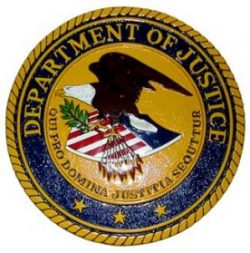
Smuggling the “Codfather” Profits: Bristol County Sheriff Captain Convicted
A Captain with the Bristol County Sheriff’s Office was convicted today by a federal jury in connection with helping Carlos Rafael, known as the Codfather in the fishing industry, and the owner of one of the largest commercial fishing businesses in the U.S., smuggle the profits of his illegal overfishing scheme to Portugal. Jamie Melo, 46, of North Dartmouth, Mass., was convicted of one count of conspiracy to commit offenses against the United States and one count of structuring the export of monetary instruments. U.S. District Court Judge Denise J. Casper scheduled sentencing for Oct. 24, 2018. The jury acquitted the defendant of one count of bulk cash smuggling. >click to read<22:30

‘Deadliest Catch’ co-star Edgar Hansen pleads guilty to sexually assaulting teen girl
Reality-TV fisherman Edgar Hansen pleaded guilty to sexually assaulting a teenage girl in September, but he’ll face no jail time under a plea deal quietly reached last week with Snohomish County prosecutors. Instead, Hansen, 47, received a 364-day suspended jail sentence and was ordered to pay court fines and fees of $1,653, court records show. He also must undergo a sexual-deviancy evaluation and treatment and give a DNA sample to authorities.,, Hansen pleaded guilty Wednesday to fourth-degree assault with sexual motivation — a gross misdemeanor — admitting he intentionally kissed and touched the victim.>click to read<20:30
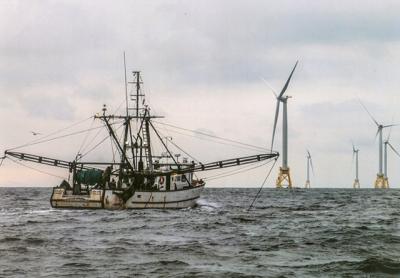
First U.S. Offshore Wind Developer Acts on Fishing Gear
U.S. offshore wind developer Deepwater Wind has adopted a first-of-its-kind procedure designed to prevent impacts to commercial fishing gear from its activities. Deepwater Wind’s Block Island Wind Farm is America’s first offshore wind farm, and the company is currently in active development on utility-scale wind farms to serve Rhode Island, Connecticut, New York, New Jersey and Maryland. The procedure was developed in close coordination with the commercial fishing industry and is based off extensive feedback from fishermen in ports up and down the Atlantic coast. Deepwater Wind believes that keeping fishermen informed is the key to preventing damage to fishing gear. >click to read<18:19
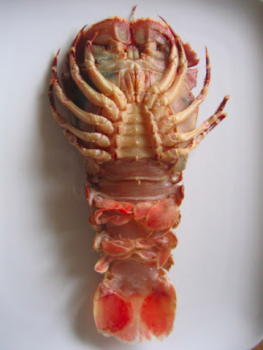
Bay lobster aquaculture developed in Tasmania
The Institute for Marine and Antarctic Studies (IMAS), under the University of Tasmania, has paved the way for the bay lobster (Thenus oriental) aquaculture industry in Tasmania, after developing a unique method to breed the resource commercially. Based at IMAS’s Taroona laboratories, the ARC Research Hub for Commercial Development of Rock Lobster Culture Systems began researching hatchery techniques for the resource, better known as Moreton Bay Bugs, in September 2017. The starting point for this project was the technique developed for the tropical rock lobster, of the Panulirus family. >click to read<15:24
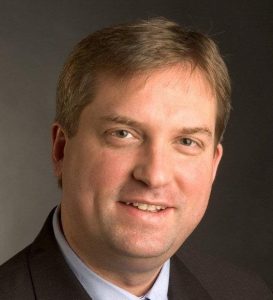
Labrador harvesters want to see adjacency explicitly incorporated into new regulations
A bill currently before the Canadian senate being heralded by environmental and Indigenous rights groups doesn’t go far enough according to the organization that represents commercial fish harvesters in Labrador. Bill C68 seeks to amend the Fisheries Act and other laws to increase protection of fish and fish habitats. If passed, it will, among other things, also explicitly require the minister to take into consideration the protection of Indigenous rights prior to making any decisions on fisheries law and incorporate traditional Indigenous knowledge into the decision-making process. >click to read<14:44
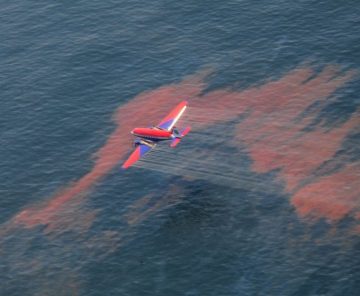
The Mississippi Coast is tired of waiting for BP money. It is time for action.
The Coast has waited far too long to learn the fate of the $700 million that has yet to be spent out of a $750 million settlement for economic damages from BP’s Deepwater Horizon oil disaster. We know the majority of the economic damage was inflicted on the people of Mississippi’s Coast. And we know that no rational argument has been made for spending the majority of the BP economic damages money anywhere but on the Coast. The Mississippi Gulf Coast’s lifeblood, tourism, was on life support. Its seafood industry was first shutdown and then mistrusted. Millions were invested to restore the country’s faith in Gulf shrimp and other delicacies. >click to read<12:22
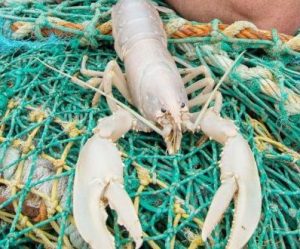
Extremely rare white lobster turns up in Bantry Bay
The whole country may have spent the past month basking in sunshine and getting as red as the proverbial lobster but for west Cork fisherman Donagh O’Connor, the warm weather has brought a rather more unusual example of the species: a very rare white lobster. The whole country may have spent the past month basking in sunshine and getting as red as the proverbial lobster but for west Cork fisherman Donagh O’Connor, the warm weather has brought a rather more unusual example of the species: a very rare white lobster. >click to read<11:47

Offshore wind topic blows back onto Ocean City agenda
Offshore wind farms near Ocean City’s coast will again come up for discussion at Monday’s Town Council meeting. Meghan Lapp, a fisheries liaison for Seabreeze Seafreeze Ltd. in Rhode Island, will outline concerns with how wind farms may affect commercial fishing, according to the agenda document. The presentation will also feature local fisherman George Topping. The addition of wind farms could restrict fishing areas, according to the presentation outline in the agenda documents. Deepwater Wind and US Wind received approval in 2017 to construct two wind turbine projects off of Ocean City. >click to read<09:56
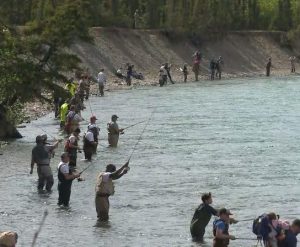
Kenai River anglers ask for closure of Cook Inlet commercial set netting
The Kenai River Sportfishing Association (KRSA) is calling for the closure of set net fishing on the Cook Inlet until adequate numbers of king and sockeye salmon enter the Kenai River. The organization is asking Gov. Bill Walker to direct the Alaska Department of Fish and Game to take action and help Kenai River salmon numbers rebound.,,, One commercial set netter agrees a closure could benefit harvests for both sides. “As a commercial set netter for almost 50 years, and speaking for myself,” Ken Coleman said, “I believe we commercial fisherman have always been in favor of department closures when the health of the fisheries is at risk, whether it be sockeyes, or Chinook or other species. >click to read<08:24






